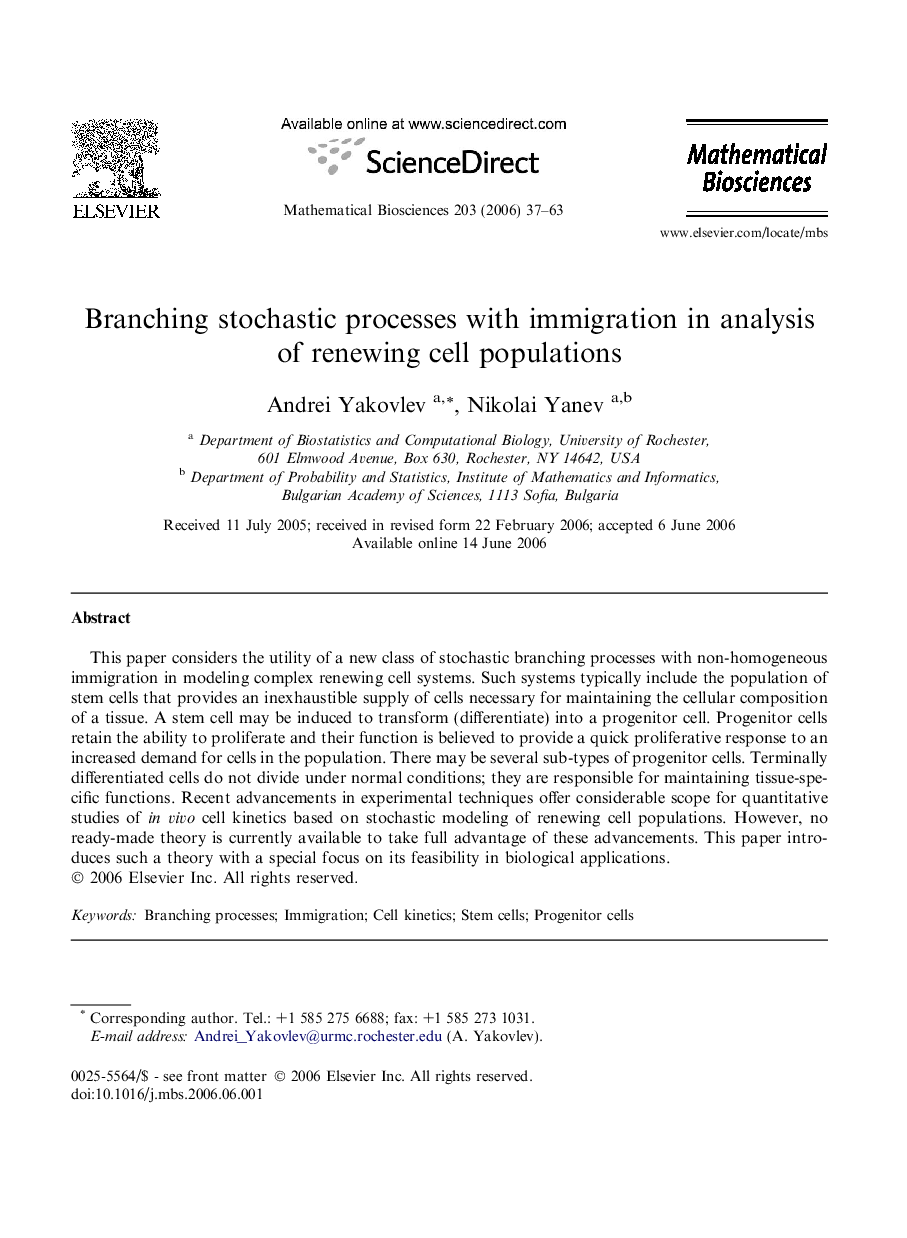| Article ID | Journal | Published Year | Pages | File Type |
|---|---|---|---|---|
| 4501176 | Mathematical Biosciences | 2006 | 27 Pages |
This paper considers the utility of a new class of stochastic branching processes with non-homogeneous immigration in modeling complex renewing cell systems. Such systems typically include the population of stem cells that provides an inexhaustible supply of cells necessary for maintaining the cellular composition of a tissue. A stem cell may be induced to transform (differentiate) into a progenitor cell. Progenitor cells retain the ability to proliferate and their function is believed to provide a quick proliferative response to an increased demand for cells in the population. There may be several sub-types of progenitor cells. Terminally differentiated cells do not divide under normal conditions; they are responsible for maintaining tissue-specific functions. Recent advancements in experimental techniques offer considerable scope for quantitative studies of in vivo cell kinetics based on stochastic modeling of renewing cell populations. However, no ready-made theory is currently available to take full advantage of these advancements. This paper introduces such a theory with a special focus on its feasibility in biological applications.
